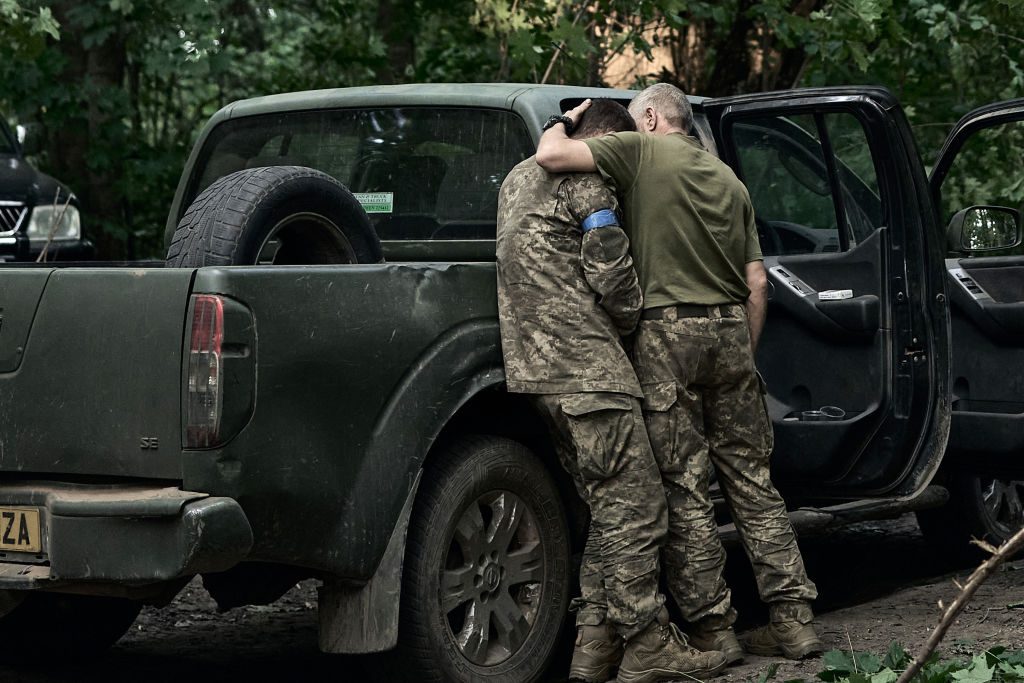Every deal produces winners and losers. In the case of Israel and Hamas, an unlikely casualty may be Russian President Vladimir Putin. As the ceasefire takes hold, US President Donald Trump will be looking for his next conflict to resolve — and next year’s Nobel Peace Prize to win. He’ll also be reflecting on lessons from his recent victory in the Middle East, namely that pressure and arm-twisting succeed while friendly overtures do not garner results.
That may explain why the White House is doubling down on its strategy of pushing — as opposed to luring — Putin to the negotiating table. Trump’s critiques of the Russian economy have been followed by concrete action. Besides news of the US furnishing intelligence for Ukrainian long-range strikes on Russian energy facilities, Trump has this weekend been discussing the supply of Tomahawk missiles to Ukraine.
Such weaponry would offer Kyiv some clear advantages. The missiles have greater reach than those currently in Ukraine’s possession, allowing forces to hit rear area targets like logistics hubs, energy infrastructure and airfields. Any upgrade to Ukrainian capabilities should be welcomed.
However, that is not to say that Tomahawks will prove a game-changer. Deliveries could take months and it remains unknown how many missiles Kyiv would receive or how often the US would resupply. Trump has expressed an interest in knowing how they would be used and America would retain command authority over launches, posing the risk that he could veto targets if he disagreed with Ukraine’s strategy. Then there are the associated operational problems, with Kyiv lacking the infrastructure necessary to launch such weaponry.
If Tomahawks cannot win the war, nor can they win the peace. The US and Ukraine seem to view the missiles as serving diplomatic goals, not military ones. Belarusian leader Alexander Lukashenko claimed they are not “going to fly tomorrow” but form part of Trump’s broader negotiating tactics, while Volodymyr Zelensky has suggested that merely having them could be enough of a threat for Russia to negotiate.
One hopes this is a feint to persuade Trump to send the missiles rather than Zelensky’s true belief, considering that Putin has steadily resisted every inducement to end the war and — for all his phoned-in “concern” — is unlikely to be frightened by a weapon that Ukraine could potentially get off the ground sometime in the future. Moscow is already threatening to shoot them down, having studied their use in Syria.
According to the deputy chairman of the Ukrainian parliament’s national security, defense and intelligence committee, the plan for the Tomahawks is to gradually ratchet up pressure on Moscow in terms of the range and importance of targets. Putin will be offered the opportunity to give in at every stage until Ukraine finally launches strikes on the Kremlin itself. This conveniently ignores the fact that, if Kyiv were to truly hit Moscow in such a fashion, Putin would be more likely to send a tactical nuclear weapon into the air than a white flag.
And what of negotiations overall? Dead, for now. Even the Russian leader’s lament that Tomahawks would destroy bilateral relations between Washington and Moscow will fall on deaf ears in the White House. Trump has already seen through Putin’s strategy of promises and procrastination. It was the need to fend off tough secondary sanctions that brought Putin to Alaska in August and that tactic could work again, should the US leader so choose.
Alternatively, the White House can wait until the end of this year or next, when economic problems and the difficulty of mobilizing further are likely to make Russia more amenable to negotiations. The challenge is to successfully support Ukraine to defend as much territory as possible in the meantime and to offer it as much leverage as possible for those talks. In that sense, for all their issues, Tomahawk missiles could be useful if up and running in time.
“If a war can be stopped in one region, then surely other wars can be stopped as well,” commented Zelensky after the Middle Eastern ceasefire. That is not the only lesson Trump should be learning from negotiating about Gaza. Bold and consistent support for Ukraine will be necessary to bring Putin to the table and Tomahawks are a step in the right direction. However, they are not enough to win Zelensky the war and Trump his Nobel Prize. If recent success has taught the US President anything, it is that he will need to apply even more pressure.











Join the discussion
Join like minded readers that support our journalism by becoming a paid subscriber
To join the discussion in the comments, become a paid subscriber.
Join like minded readers that support our journalism, read unlimited articles and enjoy other subscriber-only benefits.
Subscribe